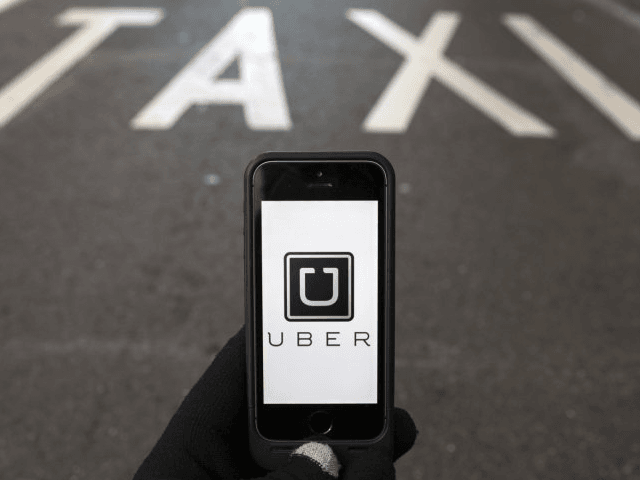The all-Republican Board of Supervisors of Orange County in California is poised next Tuesday to adopt one of the nation’s most aggressive and enlightened policies to open the doors for all passengers flying in and out of John Wayne International Airport to be able to arrive and leave the airport easily via ride-sharing companies such as Uber, Lyft and Sidekick.
Known as Transportation Network Companies, or TNCs, these companies offer a way for consumers who need a ride to pair up with someone who uses their own car to give them a ride. For the former it provides convenience married with technology that allows for summoning rides via a smartphone app, paying for the ride seamlessly online, and being able to rate a driver and quality of ride instantly. For the latter it provides a way for those looking for full or part-time work to make use of the car they already own. TNC’s offer a lower-priced way for people to get around than limousine or taxicab services, which are distinctly different and have significantly higher costs of doing business.
Under the proposal advanced by John Wayne Airport management, TNC drivers will be able to drive up to terminals, and drop off and pick up passengers curbside. That policy change represents a strong embrace of this relatively new coupling of technology and entrepreneurship.
What is even more significant about this proposal is that in almost all of the agreements between airports and TNCs around the country, only drivers with commercial permits such as Uber’s Black Car program can pick up passengers. The John Wayne proposal opens the airport to all TNC services, such as Uber’s X program, which allows personal, non-commercial vehicles.
The key factor that has limited non-commercial vehicles in TNCs from servicing airports has been one of liability. Airports are right to be concerned that it be clear who has liability if there is an accident involving a TNC vehicle. Without a clear responsible party, airports would be subject to claims and lawsuits, ultimately costing taxpayers untold sums of money.
However, in California, an agreement was reached between insurance companies and TNC’s, resulting in legislation that codifies that from the time that a TNC driver goes “app on”–turning on their TNC’s application to be connected to a passenger–commercial insurance coverage carried by the TNC would kick in, covering their driver and the vehicle. This coverage would be in effect until the driver leaves the airport terminal area.
Thanks to modern technology, it is relatively simple for John Wayne Airport to erect what is called a “geo fence” around its property that allows the airport to know when a TNC car that is “app on” comes into and out of the airport area. Under the terms of the proposed agreement, on airport pickups there would be a one-tim, small fee that would be passed along to the passenger(s) to cover the cost of enacting and overseeing this program.
Uber spokesperson Michael Amodeo said, not surprisingly, that his company urges adoption of the new policy. He told Breitbart News, “We believe that the proposed TNC permit will maximize choice, expand opportunity and help achieve John Wayne Airport’s vision of a world-class gateway for business and leisure travel.”
Of course, in the marketplace there are typically winners and losers. As innovation occurs, and new ideas and products emerge, those existing in that space must adapt, or fail. Such was the case for the makers of horse-drawn buggies and carriages with the widespread production of the automobile. The modern-day equivalent to this sort of “adapt-or-die” conundrum is the impact of the proliferation of TNC’s on the taxicab industry.
TNC’s are a distinct and different model of business–one in which the capital investment of purchasing and maintaining vehicles, and fueling them, is born by entrepreneurial individuals, not by the TNC itself. The TNC actually acts as a broker and conduit between passengers and drivers, who are all independent contractors, not employees.
Taxi companies exist in a world of tremendous investment in a fleet of vehicles and the costs associated with that. And their drivers, for the most part, are employees. There are significant regulatory costs associated with having employees, which are accentuated in a blue state like California.
It’s no wonder why taxi cab companies across America are trying to rely on state and local politicians, bought off with campaign contributions or plied by lobbyists, to use the coercive power of government to try and stop TNCs. This is a strategy doomed to fail, as the power of the free market is overwhelming.
Yellow Cab has an exclusive right to be the only company that can pick up passengers in taxis at John Wayne, a shrinking franchise. Like all taxi companies, they will need to adapt to the fact that TNC’s have broadened consumer choice, and taxi service is now only one of the options available to passengers. Adapt, or fail.
Anyone know what happened to the folks that made buggy whips? I don’t.
Jon Fleischman is the Politics Editor of Breitbart California. A longtime participant, observer and chronicler of California politics, Jon is also the publisher at www.flashreport.org. His column appears weekly on this page. You can reach Jon at jon@flashreport.org.

COMMENTS
Please let us know if you're having issues with commenting.